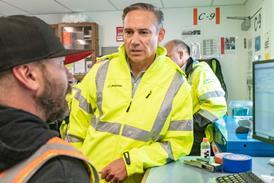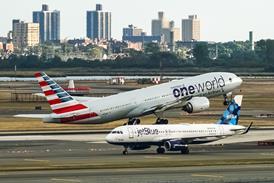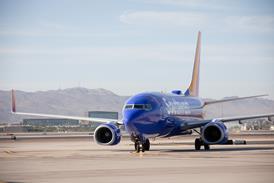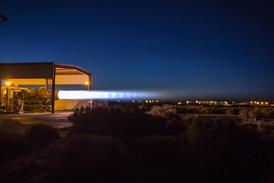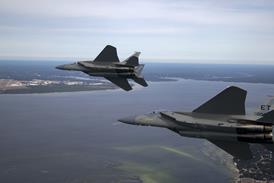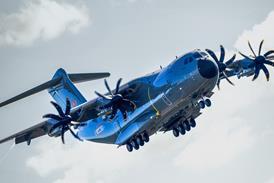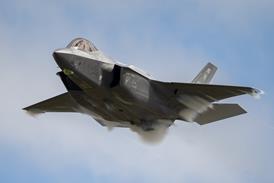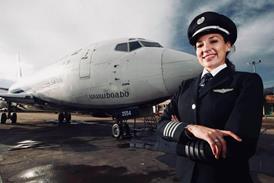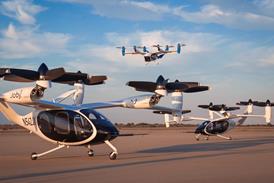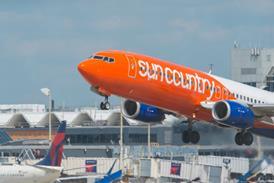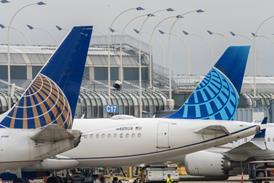DAVID FIELD AND RAMON LOPEZ / WASHINGTON DC DAVID LEARMOUNT / LONDON
Federal authorities to take charge of baggage and passenger screening, while union calls for pilots to carry guns
US President George Bush has unveiled a $500 million package to boost security for passengers and crew in the air and at airports. The move comes as US airports seek federal aid to compensate for lost revenue and the added cost of security arising from the 11 September attack, which could total $3 billion, claims the Airports Council International (ACI).
New measures announced by the president include grants for carriers to enhance cockpit security with stronger doors and locks, developing transponders that cannot be disabled and the installation of cabin video monitors.
He is also backing a study of new technology that could enable controllers on the ground to take over control of a distressed aircraft and land it by remote control.
At a rally at Chicago's O'Hare International airport designed to coax travellers back on to the nation's airlines, Bush said the federal authorities would be "in charge of passenger and bag screening and all safety inspections". Bush also disclosed that the government will pay for a call up of reservists to help enhance security at the nation's airports, including at passenger screening stations.
Under the new plan, security at the USA's 420 airports would be overseen and managed by federal officials, but manning would still include non-government employees. The government would set standards, test and conduct background checks on screeners and purchase and maintain equipment. Nationwide, about 28,000 privately employed airport screeners scrutinise travellers, but they are poorly paid and receive minimum training. US Transportation Secretary Norman Mineta says it would cost $2 billion annually for the government to take over all passenger screening at US airports.
The Bush Administration is also seeking to expand permanently the Federal Air Marshal programme, which would eventually involve putting armed plain clothed guards on all flights. Key Congressional leaders pledged prompt action on legislation that would be needed to make the proposal law.
Sky marshals have been welcomed by the US Air Transport Association and the US Air Line Pilots Association (ALPA). ALPA also wants pilots who volunteer to carry guns to be approved after checks and training.
The union is urging the immediate cockpit installation of electric "stun" guns as standard. Bush has so far avoided any reference to arming pilots.
The International Air Transport Association (IATA), which represents most of the world's large airlines, has deplored the carrying of firearms anywhere in aircraft, contending that having guns on board threatens safety more than it might decrease the hijacking risk.
IATA sees the 11 September disaster as the result of failures of intelligence and security on the ground, and believes that global co-operation on intelligence and smarter technology at airports could ensure that hijackers do not get onto aircraft.
US airports' revenue losses, which have totalled about $200 million in the two weeks since the attacks, may reach $1.84 billion over the next 12 months, ACI-North America president David Plavin, told the House of Representatives aviation subcommittee.
He is seeking a federal guarantee to support airport bonds, standby lines of credit to provide three to six months of debt service and for Congress to give airports flexibility to refinance existing debt.
Individual airports have been hit dramatically. Typical is Los Angeles International, where operations were at about 80% of pre-attack levels and operating losses approached $1 million a day a fortnight after the attack. Before the attacks, LAX made about $1 million a day.
Source: Flight International

